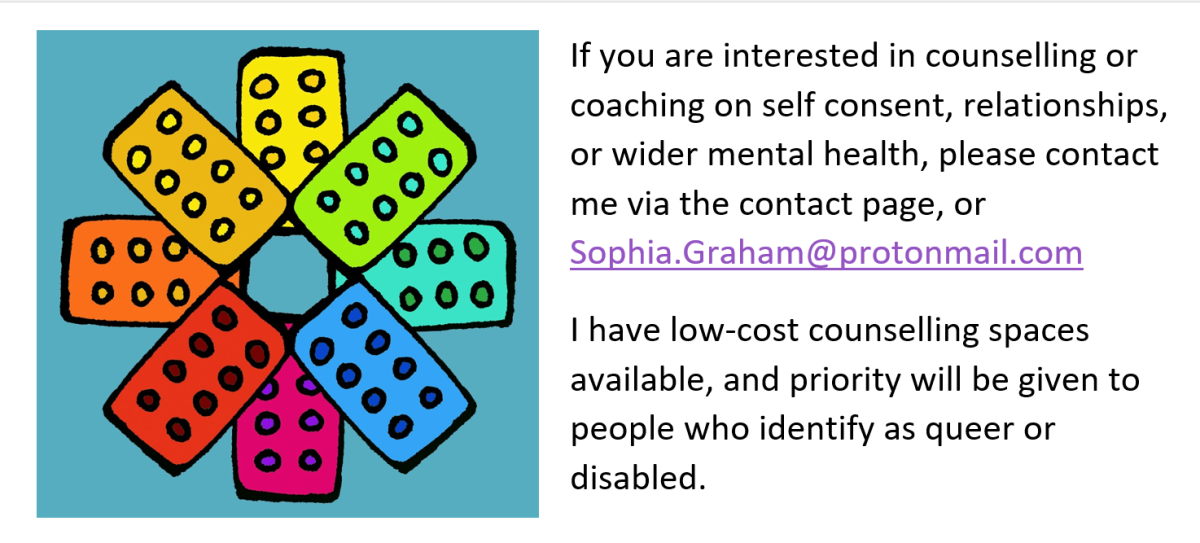The way that I most easily express my love for others is with words. If I’m thinking about the traditional love languages, more than anything else it is what I’m good at. But I still have that very English sense of reserve around complimenting people. A couple of weeks before my beloved Gran died I managed to overcome it, and to write her a ‘get well soon’ card. My Gran was a complicated person. She was oddly specific in her racism (she’d travelled the world on a merchant ship for years and based her perception of an entire country of people on her experiences while there, however brief the trip), she was stubborn to a fault, and living with her between school and uni for 9 months was VERY HARD. She was also loving and kind and generous and hilarious. My card was about how she shaped me, how grateful I was for her place in my life, how I admired her and the things that I loved about her.
My cousin found this card when she was up visiting, and was somewhat horrified by its saccharine tone. Nevertheless, she read it to her every day that she visited and by the end of her trip she also managed to share her feelings, in spite of her initial reaction. It helped to heal their relationship, which had been fractured by some conflict years earlier. My gran had that card read to her most days of her hospital stay, for the last few weeks of her life. I think I still got more out of writing it than she did from reading or hearing it. I get to remember the warmth I felt thinking about who she was to me and how she shaped who I have become. When I think of her now, it is mostly of the things I wrote in that card. It isn’t that I have forgotten the complicated aspects of our relationship, but by focusing on and thinking about the positive things, I was able to shape how I think about that relationship now. That’s powerful, and it is what I invite you to consider doing in your relationships.
Relationships are complicated, especially with the people we are closest to. They aren’t always smooth or easy. Injecting some warmth and positivity into them can really change a dynamic and has the potential to transform interactions. I thought I’d share a few quick tips to do exactly that. These tips work for platonic, romantic and sexual relationships, so whether it is a work colleague, friend or lover, try them out!
Express gratitude
Finding something that your person does that you are grateful for is a wonderful way to improve your relationship. It is affirming and it demonstrates that you notice the things that the other person brings to your life. It can be a small thing – like making you a cup of tea – or a much bigger thing – like being there for you at a big medical appointment or when you’re experiencing a crisis. Gratitude has a side benefit of being generally good for your mental health as well as giving your relationship a boost. It turns out that people who regularly express gratitude are more resilient and less likely to suffer from mental illness.
Express admiration
In nearly every relationship in our lives we can think of things about the other person that we admire, but often we keep our admiration to ourselves. Sharing our admiration reinforces those positive feelings, and gives a boost to the person you’re talking to. This is different from gratitude because it is about the other person and not about you. I’d recommend picking something about their character rather than appearance to admire (because it is awfully easy to fall into creepy territory when focusing on someone’s looks, unless you’ve checked with them that they like to be objectified in that way).
Give a meaningful compliment
While compliments might sound a lot like admiration, I think there are important distinctions. For me, compliments are about recognising the things that are important to the other person, and that you also feel positive about. Compliments are the most meaningful when they are about areas that people feel good about themselves, or that they are insecure about. To be meaningful, they need to be genuine. If your person succeeds at something that was particularly hard for them, a compliment about that is likely to be really well received. Similarly, if you know they are particularly proud of their latest blog post, book or sporting achievement and you feel proud, happy or otherwise positive, that’s also a great compliment. A big part of the joy of compliments is that someone else has noticed us. It is the positive and affirming gaze of someone we care about. When they have gone out of their way to notice and talk about something they like about us, it feels great.
Give these tips a go, they might change the pattern in your relationships and make you and your people happier!


